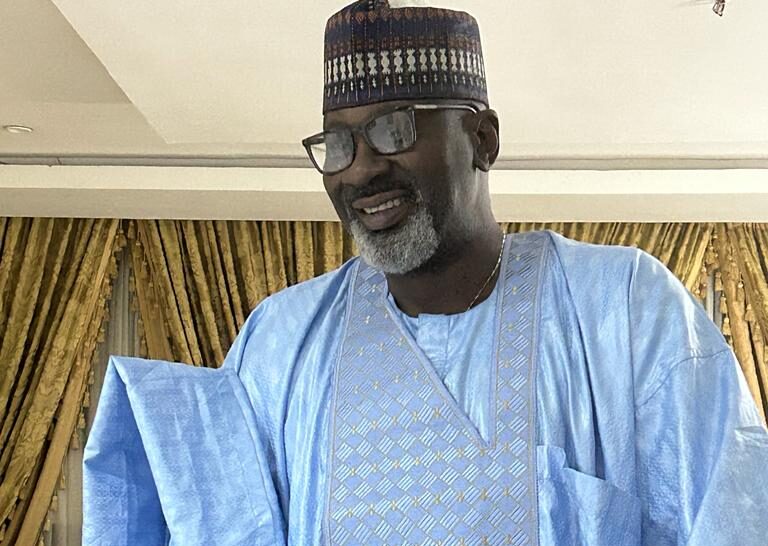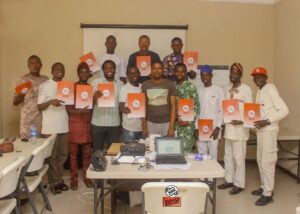The questions we have ignored in asking so we can know the truth – Abayomi Odunowo
Imagine for a minute that our democracy in Nigeria is practiced the way it was designed to work, with federal, state, and local governments performing their constitutional roles without the influence of the various Nigerian factors that often hinder their effectiveness. In this hypothetical scenario, each governor of the 36 states would be able to fully exercise their enumerated roles as the chief security officer of their state, without interference from external forces. The FCT Minister would likewise be able to effectively govern the Federal Capital Territory without any undue influence.
Without the Nigerian factors that currently impede the functioning of our democracy, each level of government would be able to operate independently and in the best interest of the people they serve. This would lead to more efficiency and effectiveness in delivering public services, infrastructure development, and maintenance of law and order.
Furthermore, the absence of these factors would foster a more transparent and accountable system of governance, where leaders are held responsible for their actions. It would also create an environment where the rule of law and the constitution are revered, leading to a more stable and secure country.
if our democracy in Nigeria could function as it was initially designed to, without the interference of the various Nigerian factors, then we could truly see the potential for effective governance and national development.
Nigeria, a nation with vast potential and resources, is currently facing numerous challenges that hinder its growth and development. One of the primary reasons for this is the failure of the 36 State governors and the FCT minister in the case of Abuja, to effectively deliver on their constitutional roles. These roles include ensuring peace and security within their territories, as well as addressing crucial issues such as education, food security, youth employment, good transportation, affordable housing, and more.
Let us start with education. It is widely known that education is the bedrock of any society. However, the state of education in Nigeria is far from satisfactory. Many public schools lack basic facilities, teachers are often underpaid and overworked, and the overall quality of education is subpar. The responsibility lies with the governors and the FCT minister to ensure that every child has access to quality education. This includes providing adequate funding for schools, ensuring the welfare of teachers, and implementing policies that improve the overall standard of education.
Food security is another crucial issue that needs to be addressed. Nigeria has vast agricultural potential, yet many parts of the country still struggle with food insecurity. The governors and the FCT minister must prioritize initiatives that support farmers, improve agricultural productivity, and ensure that every citizen has access to nutritious and affordable food. This would not only improve the overall health and well-being of the population but also contribute to economic growth.
Peace and security are fundamental to the overall prosperity of any nation. Unfortunately, many parts of Nigeria are plagued by various forms of insecurity, ranging from insurgency to communal clashes. The governors and the FCT minister must take proactive measures to address these security challenges. This includes investing in law enforcement agencies, implementing community policing initiatives, and promoting dialogue and reconciliation amongst various ethnic and religious groups.
Youth employment is another critical issue that must be addressed. Nigeria has a large youth population, and many young people struggle to find gainful employment. The governors and the FCT minister should focus on creating an enabling environment for job creation. This includes investing in skills development programs, promoting entrepreneurship, and attracting private sector investment that would create job opportunities for young people.
Good transportation is essential for the movement of goods, services, and people. However, many parts of Nigeria lack adequate transportation infrastructure. The governors and the FCT minister must prioritize investments in roads, bridges, ports, and other forms of transportation infrastructure. This would not only improve connectivity within the country but also facilitate economic growth and development.
Affordable housing is a basic necessity that many Nigerians currently lack. The governors and the FCT minister have a responsibility to address the housing deficit by implementing policies and initiatives that promote affordable housing. This includes working with private developers, providing incentives for affordable housing projects, and ensuring that urban planning policies prioritize the needs of low-income families.
The failure of the 36 State governors and the FCT minister in the case of Abuja, to effectively deliver on their constitutional roles has contributed to the numerous challenges facing Nigeria today. However, if these leaders focus on addressing crucial issues such as education, food security, peace and security, youth employment, good transportation, affordable housing, and more, Nigeria has the potential to become a paradise. It is time for our leaders to set aside the blame game and prioritize the well-being of the nation. Only then can Nigeria reach its full potential and become a prosperous and thriving nation.
Every day, we are bombarded with the voices of those who do not understand democracy, yet feel it is their duty to call out the federal government, and only the federal government, for all societal ills. These individuals frequently engage in relentless criticism and condemnation, refusing to recognize the complexities of our political system and the shared responsibilities of the various levels of government.
In their narrow-mindedness, these individuals fail to comprehend that the federal government actually has the least direct impact on their daily lives, as it is the state and local governments that handle issues such as education, healthcare, and social welfare. They ignore the fact that our system of governance allocates distinct powers and responsibilities to different tiers of government.
Despite 24 years of democracy, there remains a pervasive lack of understanding about the role and function of government at different levels. This ignorance leads to a cacophony of uninformed opinions and demands, which contribute to the erosion of civil discourse and hinder progress towards effective governance.
It is high time for those who do not understand democracy to educate themselves about the true workings of government and to acknowledge the importance of holding all levels of government accountable. Only then can we hope to move towards a more informed and constructive dialogue that benefits our society as a whole.
Otunba Abdulfalil Abayomi Odunowo
National Chairman AATSG
15th February, 2024
Do you have any information or event for Epinews to publish or cover? Kindly Call us on +2349053535322 or send us message on Whatsapp number +2349053535322 or send us an email here













